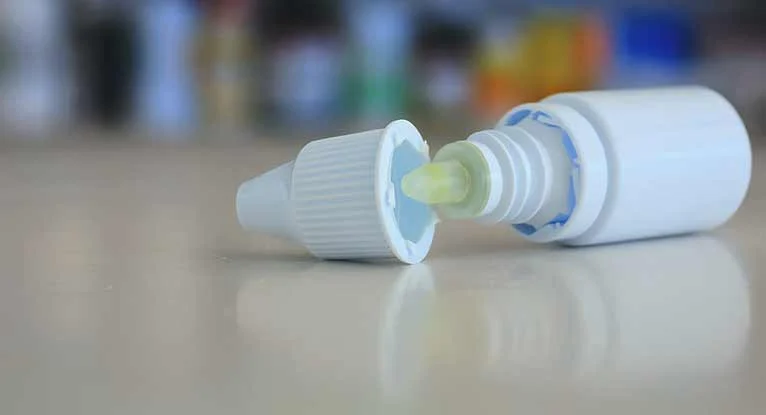If you’re looking for a way to clean your ears, you may have heard that hydrogen peroxide can be used. However, you may be wondering if this is a safe method.
Hydrogen peroxide is a chemical compound that is often used as a disinfectant or bleaching agent. It is also used in ear drops to soften earwax so that it can be removed more easily.
While hydrogen peroxide is generally safe for use in the ears, there are a few things to keep in mind. First, be sure to use a 3% solution of hydrogen peroxide. This is the concentration that is typically sold in stores.
Second, you should never use hydrogen peroxide in ear your ear if you have a perforated eardrum. This could cause serious damage.
Third, be sure to rinse your ear with water after using hydrogen peroxide. This will help to remove any residue that may be left behind.
Overall, using hydrogen peroxide to clean your ears is generally safe. However, be sure to follow the instructions carefully and never use it if you have a perforated eardrum.
2. What is Hydrogen Peroxide?
Hydrogen peroxide (H2O2) is a clear liquid with a slightly sharp odor. It is a weak acid and is slightly soluble in water. Hydrogen peroxide is the simplest peroxide (a compound with an oxygen-oxygen single bond). It is used as an antiseptic agent and as a rocket propellant.
Hydrogen peroxide was first prepared in 1818 by French chemist Louis-Jacques Thénard. It was used commercially in the early 1900s in the bleaching of wood pulp. In the 1930s, H2O2 was used in the synthesis of the first synthetic rubber. Today, hydrogen peroxide is produced on a large scale for a variety of uses.
Hydrogen peroxide is a strong oxidizer and can be corrosive to the skin, eyes, and respiratory tract. Ingestion of hydrogen peroxide can cause gastrointestinal irritation and vomiting. Prolonged exposure to high concentrations of hydrogen peroxide can cause liver and kidney damage.
3. How does it work?
Hydrogen peroxide is often used as a home remedy for ear wax removal. The rationale behind using hydrogen peroxide for this purpose is that it can help to break down the earwax.
There are a few different ways that you can use hydrogen peroxide for this purpose. One common method is to place a few drops of hydrogen peroxide in ear into the ear, wait a few minutes, and then flush the ear out with warm water.
Another method is to mix equal parts of hydrogen peroxide and water, and then use a cotton ball to apply the mixture to the inside of the ear. Wait a few minutes and then flush the ear out with warm water.
If you are going to use hydrogen peroxide for this purpose, it is important to use a 3% solution. This is the concentration that is typically sold in drug stores. Higher concentrations can actually be harmful to the ear.
If you have any concerns about using hydrogen peroxide in your ears, you should consult with a doctor or other medical professional.
4. What are the benefits?
Hydrogen peroxide is a popular home remedy for earwax removal. Although there is little scientific evidence to support its use, many people believe that it helps to break down and remove earwax.
There are a few potential benefits of using hydrogen peroxide to remove earwax. These include:
1. Hydrogen peroxide is a natural disinfectant. This means that it can help to kill bacteria and other germs that may be present in the ear. This can help to prevent infections.
2. Hydrogen peroxide is a gentle cleanser. Unlike some other earwax removal methods, it will not irritate the skin inside the ear.
3. Hydrogen peroxide is easy to find and relatively inexpensive.
There are a few potential risks associated with using hydrogen peroxide to remove earwax. These include:
1. Hydrogen peroxide can cause irritation. If it gets into the ear, it can cause stinging and burning.
2. Hydrogen peroxide can damage the ear. If used too often or too aggressively, it can strip away the natural protective oils in the ear, leaving it vulnerable to infection.
3. Hydrogen peroxide can cause hearing loss. If used excessively, it can damage the delicate structures in the ear that are responsible for hearing.
If you are considering using hydrogen peroxide to remove earwax, it is important to talk to your doctor first. They can help you to weigh the risks and benefits and decide if it is the right treatment for you.
5. What are the side effects?
5. What are the side effects of hydrogen peroxide in the ear?
Hydrogen peroxide is a popular home remedy for earwax removal. However, it can also cause some side effects, such as skin irritation, stinging, and redness. In rare cases, it may also cause an allergic reaction. If you experience any of these side effects, stop using hydrogen peroxide and see your doctor.
6.Conclusion
If you’re looking for a way to clean your ears, you may have heard that hydrogen peroxide can be used. However, you may be wondering if this is a safe method to use.
Hydrogen peroxide is often used as a disinfectant and can be found in many household cleaning products. It’s also used in ear drops that are meant to soften earwax.
So, is it safe to use hydrogen peroxide in your ears?
Generally speaking, yes, it is safe to use hydrogen peroxide in your ears. However, there are a few things you should keep in mind.
First, when using hydrogen peroxide in your ears, be sure to use a 3% solution. This is the concentration that is safe for use in the ears.
Second, don’t use hydrogen peroxide more than once a week. Using it more often than that can actually dry out your ears and make the problem worse.
Third, when using hydrogen peroxide in your ears, be sure to tilt your head to the side and squirt the solution into your ear canal. Then, let it sit for a few minutes before draining it out.
fourth, you should never use hydrogen peroxide to clean your ear piercings. This can actually irritate the piercing and delay the healing process.
Overall, hydrogen peroxide is a safe and effective way to clean your ears. Just be sure to use it properly and not too often.

